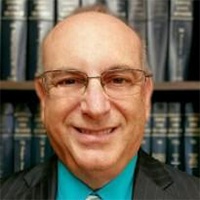Earleton Misdemeanor Lawyer, Florida
Sponsored Law Firm
-
 x
x

Click For More Info:
-
Sword & Shield, P.A.
1437 Market St Tallahassee, FL 32312» view mapCriminal Defense Law Legal Representation You Can Trust
Our team of attorneys has the experience and creativity that will provide you with an outcome that will not hurt your rights or your future.
800-978-7301
Juan Carlos Calama
✓ VERIFIEDCriminal, DUI-DWI, Felony, Misdemeanor, Traffic
Juan was born in Miami, Florida to parents that fled from Cuba in the late 1950s from the tyrannical Castro regime. A native of Miami, Juan atten... (more)
Kevin Alan Raudt
✓ VERIFIEDCriminal, DUI-DWI, Felony, Misdemeanor
Kevin Alan Raudt proudly serves Ponte Vedra Beach, FL and the neighboring communities in the areas of Criminal Defense, Divorce & Family Law and DUI... (more)
FREE CONSULTATION
CONTACTFREE CONSULTATION
CONTACTMichael Andrew Price
Misdemeanor, Criminal, Federal Trial Practice
Status: In Good Standing Licensed: 12 Years
Joanne Marie Fakhre
Immigration, Employee Rights, Family Law, Misdemeanor
Status: In Good Standing Licensed: 24 Years
Douglas Hill Clifton
Misdemeanor, Felony, DUI-DWI, Criminal, Bankruptcy & Debt
Status: In Good Standing Licensed: 17 Years
 Adrian Middleton Tallahassee, FL
Adrian Middleton Tallahassee, FL Practice AreasExpertise
Practice AreasExpertise


